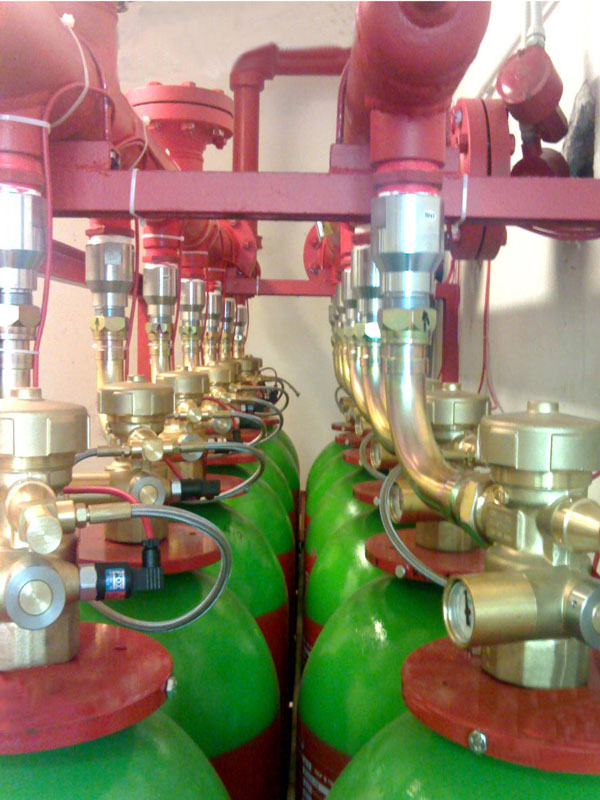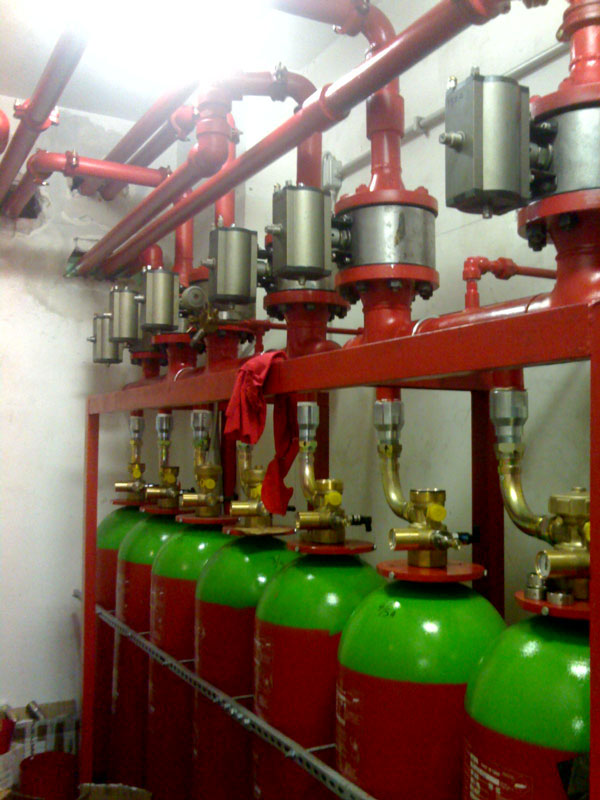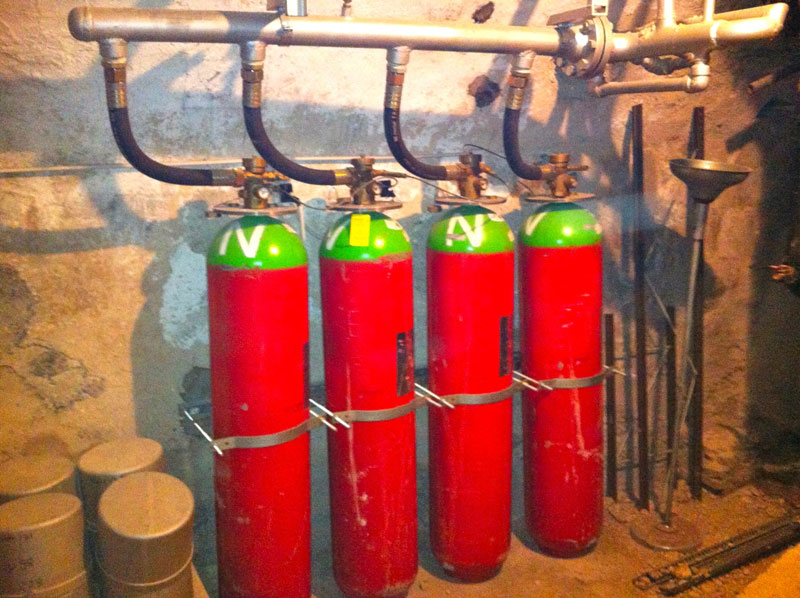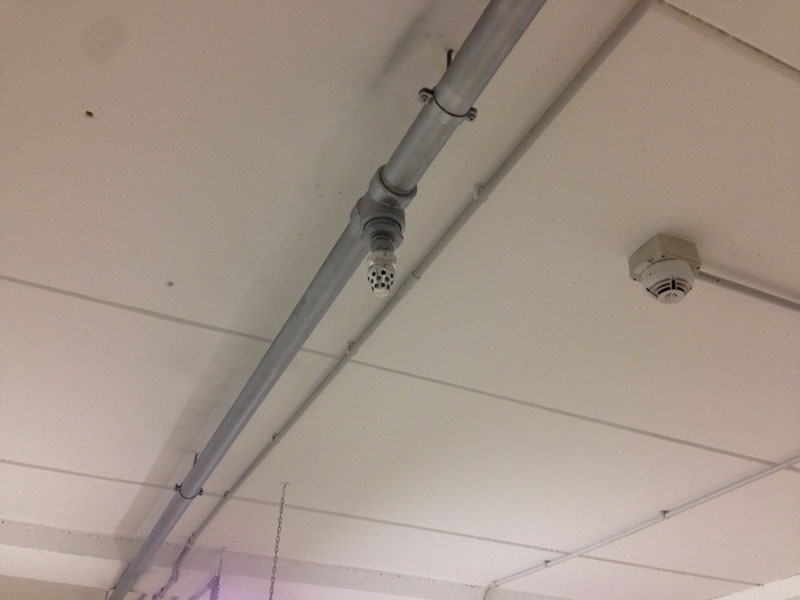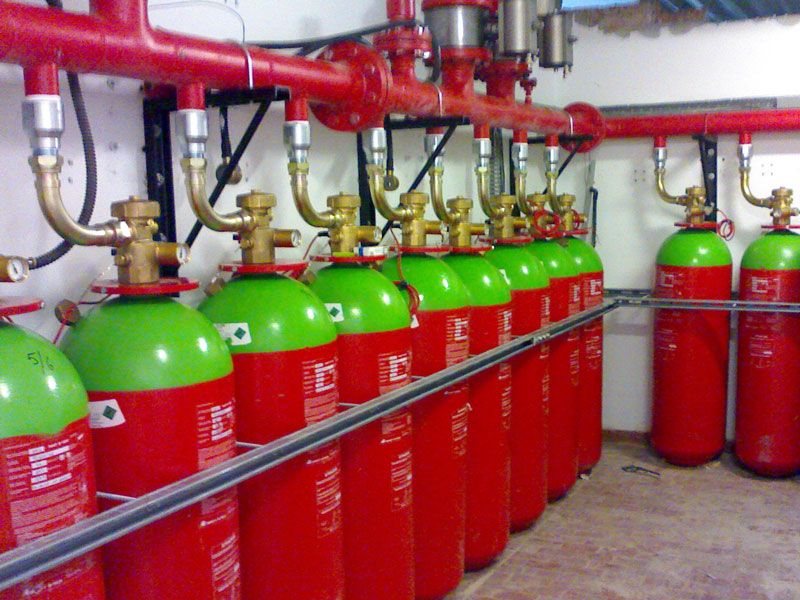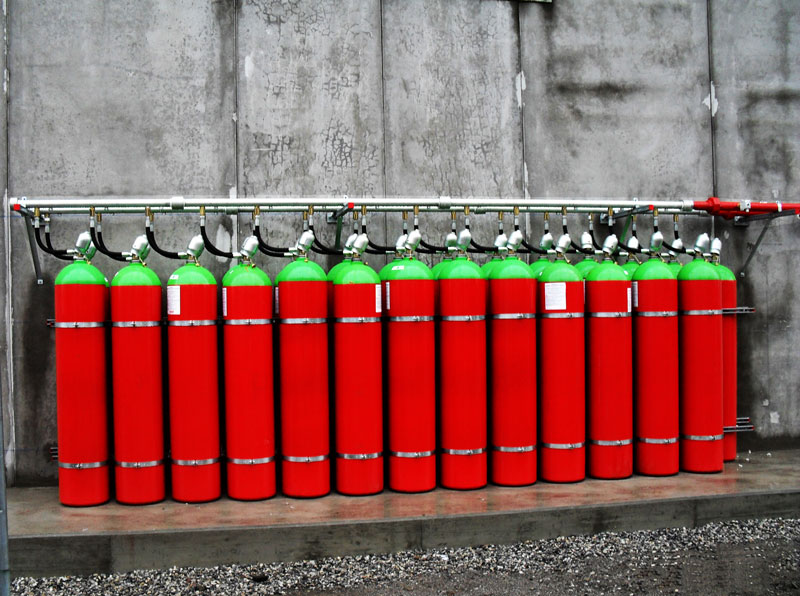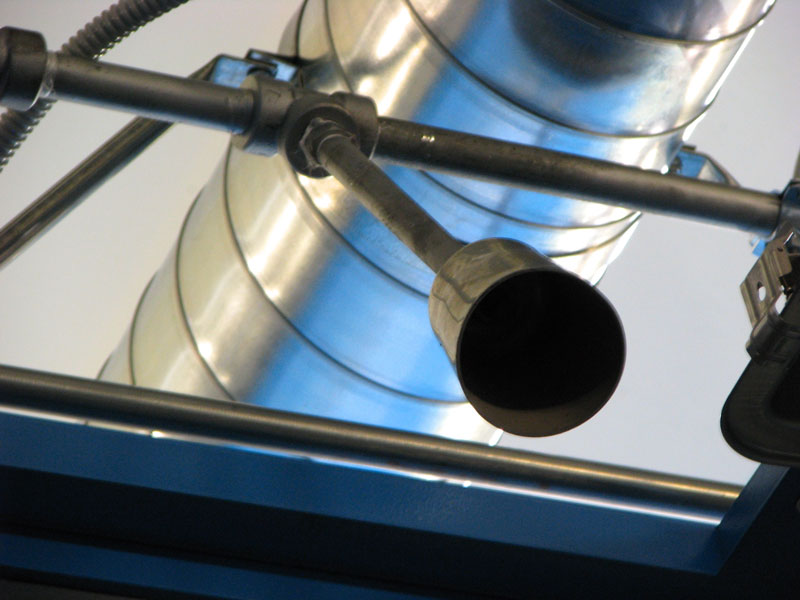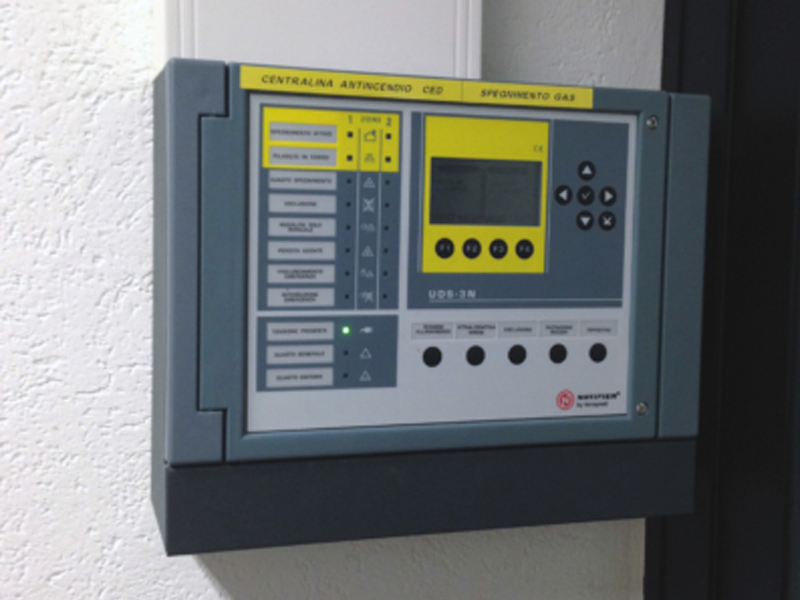Project Description
/details
Chemical gases for extinguishing fires are clean and suitable for total saturation applications. They are electrically non-conductive and do not release residues when they evaporate. This type of system requires a minimum amount of storage space for the cylinders and allows achieving quick and safe extinguishment (10 seconds); the rapid discharge guarantees reduced extinguishment times, drastically limiting the damage caused by the fire.
The chemical gases used by Castagna Antincendi and recognised by standard UNI EN 15004 (1-15) do not deteriorate the ozone layer and are eco-friendly. In addition, they have a low level of toxicity as they allow a residence time of over 5 minutes in the protected environment, which is well above the time required for evacuation.
Castagna Antincendi can provide a wide selection of chemical gases ranging from HFC PF 23 (HFC 23), FM 200® (HFC 227ea), NAF S125 (HFC 125) to the technological NOVEC® 1230 (FK-5-1-12mmy2).
Their characteristic is the ability to interfere with the combustion process and to absorb its energy without reducing the concentration of oxygen present in the environment. To determine the amount of gas required, calculations made by certified software are performed. The control dictated by current regulations is guaranteed by performance of the DOOR FAN TEST in accordance with standard UNI EN 15004, which is carried out to size the system and check any gas leaks that would make it inefficient.
NOVEC® 1230 in particular is unrivalled, as it was developed with the specific aim of developing a technology capable of offering a feasibile long-term solution for targeted fire protection. It has non-corrosive and non-conductive properties that also make it suitable to protect sensitive equipment and it evaporates right after being discharged. Given the environmental characteristics, it is highly unlikely that the use of NOVEC® 1230 will be restricted in the future.
Castagna Antincendi are certified by the third-party certification body RINA (F-GAS CERTIFICATE) in accordance with the company qualification certificate pursuant to (EU) regulation 517/2014.
All Castagna Antincendi chemical gas systems are available in versions KIT, pre-engineered or installed on a turnkey basis. We store gases as compressed gases in 2 to 140 litre cylinders.
/applications
Protection of valuable goods, IT applications, robotics, low temperature areas, refineries, telecommunications, weather stations, Data Centre Rooms, data centres, servers, transformer rooms, historical archives, museums, banks, libraries, bookstores, oil&gas, chemical and pharmaceutical companies, equipped containers, industrial machinery.
/advantages
Ideal for protecting valuable goods
Quick extinguishment (10 seconds)
Eco-friendly
Cylinders take up a minimum amount of space
Extremely quick and reliable
Electrically non-conductive
No residue after discharge so no need for cleanup
Independent fire extinguishing system
Low pressure system
High safety margins for the people inside
No visibility problem after a discharge
Valve with constant discharge technology (CDT)
Certified Door Fan Test
Available according to UNI EN 15004 (1-15), VdS, NFPA and FM standards.
/advantages
Ideal for protecting valuable goods
Quick extinguishment (10 seconds)
Eco-friendly
Cylinders take up a minimum amount of space
Extremely quick and reliable
Electrically non-conductive
No residue after discharge so no need for cleanup
Independent fire extinguishing system
Low pressure system
High safety margins for the people inside
No visibility problem after a discharge
Valve with constant discharge technology (CDT)
Certified Door Fan Test
Available according to UNI EN 15004 (1-15), VdS, NFPA and FM standards.
/details
Chemical gases for extinguishing fires are clean and suitable for total saturation applications. They are electrically non-conductive and do not release residues when they evaporate. This type of system requires a minimum amount of storage space for the cylinders and allows achieving quick and safe extinguishment (10 seconds); the rapid discharge guarantees reduced extinguishment times, drastically limiting the damage caused by the fire.
The chemical gases used by Castagna Antincendi and recognised by standard UNI EN 15004 (1-15) do not deteriorate the ozone layer and are eco-friendly. In addition, they have a low level of toxicity as they allow a residence time of over 5 minutes in the protected environment, which is well above the time required for evacuation.
Castagna Antincendi can provide a wide selection of chemical gases ranging from HFC PF 23 (HFC 23), FM 200® (HFC 227ea), NAF S125 (HFC 125) to the technological NOVEC® 1230 (FK-5-1-12mmy2).
Their characteristic is the ability to interfere with the combustion process and to absorb its energy without reducing the concentration of oxygen present in the environment. To determine the amount of gas required, calculations made by certified software are performed. The control dictated by current regulations is guaranteed by performance of the DOOR FAN TEST in accordance with standard UNI EN 15004, which is carried out to size the system and check any gas leaks that would make it inefficient.
NOVEC® 1230 in particular is unrivalled, as it was developed with the specific aim of developing a technology capable of offering a feasibile long-term solution for targeted fire protection. It has non-corrosive and non-conductive properties that also make it suitable to protect sensitive equipment and it evaporates right after being discharged. Given the environmental characteristics, it is highly unlikely that the use of NOVEC® 1230 will be restricted in the future.
Castagna Antincendi are certified by the third-party certification body RINA (F-GAS CERTIFICATE) in accordance with the company qualification certificate pursuant to (EU) regulation 517/2014.
All Castagna Antincendi chemical gas systems are available in versions KIT, pre-engineered or installed on a turnkey basis. We store gases as compressed gases in 2 to 140 litre cylinders.
/applications
Protection of valuable goods, IT applications, robotics, low temperature areas, refineries, telecommunications, weather stations, Data Centre Rooms, data centres, servers, transformer rooms, historical archives, museums, banks, libraries, bookstores, oil&gas, chemical and pharmaceutical companies, equipped containers, industrial machinery.



